
The Lowdown:
December 3, 2013
Alice Wallace: A Thousand Miles From Home
by Jason D. 'Diesel' Hamad
Wallace has the advantage of sunny California to provide her pretty ivory-covered backdrops, but her songs are often of a much darker hue. Photo by R.J. Corby.
It was just over two years ago that I first heard Alice Wallace’s music, a unique blend of country, folk and blues colored by the sun-soaked climes of Southern California. As I prepared to review her debut album Sweet Madness—which eventually earned her a Surfy for Debut Artist of the Year and top ten finishes in both the Album and Song of the Year categories—two facets of her work were striking from the very first, the quality of Wallace’s voice—which is the best of anyone I’ve ever covered and easily stands up to highly acclaimed singers such as Alison Krauss—and her ability to write deeply personal lyrics that cut right to the heart of her own emotions.
With her sophomore effort A Thousand Miles From Home, that clear, powerful voice is just as impressive as ever, but Wallace’s songwriting has jumped to a whole new level of excellence. As a fulltime working musician, she could commit herself more completely to the creative process, and along with her growing maturity as a musician, that effort shows. While Wallace’s strength still lies in an ability to strip away her own defenses and expose the raw, sometimes none-too-pretty depths of her own soul, her writing on this album is more taught, more expressive, more symbolic, and by becoming even more personal has reached a new level of universality. She rakes deeper and stands naked under the gaze of her audience more bravely than any but the most committed artists dare.
“The major themes of the album are really about me discovering myself,” Wallace explains, “how I deal with heartache; how I deal with pursuing my musical dreams. I try to write about heartbreak without portraying myself as the victim of my circumstances. I think every situation is an opportunity to learn about yourself and the world around you. And the last two years of my life have been a time of big changes—quitting my job, losing relationships, exploring what it is like to be a traveling musician. And all of that is reflected in the album.”
Many of Wallace’s songs focus on breakups, as romantic relationships are obviously something with which she struggles, but while they may form the backdrop, these events are really just the emotional triggers for deep introspection. As I asserted in my original review of her work, Alice is a complicated person. She’s the type whose shining exterior may, to the casual observer, easily mask a much more troubled, bubbling, seething, and sometimes downright dark interior, just as the bouncing beats, bright chords and soaring vocals may, to the casual listener, easily mask the beclouded, atramentous emotions expressed through her lyrics.
“I definitely learn things about myself from writing songs,” Wallace expounds. “Putting your emotions into words forces you to distill the whirlwind you're experiencing into something comprehensible. It's probably the closest thing to therapy that I've found. Does it make me feel better? Not necessarily. Not at first, anyway. It usually makes me feel worse at the beginning. Sometimes I'll wait quite a while before writing a song about something painful, and it just dredges everything right back up and I feel like I'm back in that place all over again. But eventually, yes. Because it is like therapy.”
She may have an easy (and rather blinding) smile—especially when she's at home up on stage—but the most impressive aspect of Wallace's songwriting is her ability and willingness to delve into the darker corners of her personality. Photo by Liz Voytko.
The listener who is willing to explore the more forbidding corridors of her personality will undoubtedly be rewarded and may even discover more about themselves than they might have expected. With this album, Alice Wallace joins Kelley McRae as the only two songwriters who can always be counted on to make me cry, which is exactly why I turn to them so often when I hope make myself feel better.
Although they are well crafted throughout the collection, two songs in particular should be marked as lyrical standouts. The first is the title track, “A Thousand Miles From Home,” which was the last piece Alice completed. As such, it wraps up all of the major themes of the album in one place. The top level may be the aspect of her adjusting to life as a full-time touring musician and finding a home on the road, but those wide vistas are just a physical setting for a particularly deep examination of Wallace’s almost trademark emotional complexity and her continuing search to find a home within herself.
“I wrote that song right before we went into the studio,” she explains, “and I had just returned from my longest tour yet, where we drove a few thousand miles to Wyoming and back. And I really felt so free by the time I got back. The song came out of my reflecting on the fact that I felt more at home driving across the country than I did staying in one place. I have always been a bit restless when it came to settling down in one place, so in a way, being on the road is perfect for me. Of course, the idea is also very lonely. My idea of what ’happy‘ looks like has changed so many times, that I'm not even sure any more. I'm still looking for it. But I don't think I'll find it staying in one place.”
There’s certainly nothing happy about the bulk of the song. In fact, it’s a well-composed and finely detailed portrait of a depressive personality, keying in on the narrowing horizons, loss of hope, and mental and physical wanderlust that are endemic to such mental malaise. But woven through that Cimmerian cloth are a few radiant stitches representing a pathway toward the sunlight:
So no one ever tells you growin’ up that life is not what it seems;
That we don’t all get our dreams. But at least we can try.
A thousand miles from home I think I finally found what I need;
At least I’ve planted a seed that might grow to remind
Of when life was long
Stretched out its arms
As far as the eye could see
In front of me.
So please don’t tell me you can’t face another day
When there’s oh so many reasons to find a way
To go all of those places you wanted to see.
That final defiance within the bridge, where Wallace’s powerful voice rises in both pitch and strength like a phoenix unfolding its wings as it emerges from the ash, is perhaps the most succinct key to understanding both the author’s personality and the spirit with which she ultimately imbues all of her music.
The other lyrical peak is the final track, “A Simple Song.” Simple in structure it certainly is, with Alice’s thick, smoky voice nearly naked above the lightly picked acoustic guitar and subdued pedal steel. Simple in concept, however, it is not. As with many of Wallace’s songs, it is told against the backdrop of a crumbling relationship, although if a romantic engagement is implied the connection with her listeners is the underlying focus. Within the plain language is a rather intricate rumination on both the place of the artist in relation to the audience and the place of art within the artist’s own life:
Well, who am I to sing to you?
Have I been through any more than you have?
Can I see a little more what’s in store
When I am just as sad?
I’ve tried so hard to find the perfect words to say,
The perfect words that would always make you stay.
Hard as I try the words just always seem so wrong.
Sometimes the hardest thing to write is just a simple song.
A poet I have never claimed to be,
Hopin’ someday all these words will come to me.
For now I’ll stumble through this life I’ve never planned
And all I have to offer is my hand,
Some simple words, a simple key,
A melody that you can sing to.
The artist rarely knows more than the audience. Art may be created with a purpose in mind, but often that purpose is allowing the artist to relate to herself as much as conveying anything to anyone else. One gets the feeling that it is this process of self-examination that leads Wallace to create songs of such universal meaning, precisely because she seeks meaning first within herself.
But the album is not entirely a spelunking adventure into the murky depths of Alice Wallace’s soul, and she proves once again that she is often at her best when she throws off her vaporous shroud and just has a bit of fun. This is exactly what she does with “Oh So Sweet,” a bouncy, boisterous piece marked by its light-footed beat, glittering ukulele, airy accordion, puckish guitar and piano, and the big, open-throated roundness of Alice’s vocals.
“I call ‘Oh So Sweet’ the ‘Laundromat Song,’” Wallace reveals, “because I wrote it while sitting outside the laundromat in my car. We hang our clothes to dry at home, so during the winter months when it's cold or rainy, we spend a lot of time at the laundromat. I got a ukulele for a birthday present a year ago, and I started taking it with me to pass the time and ‘Oh So Sweet’ popped out during one of my laundromat sessions. It's one of those songs where I literally wrote it in a few minutes and never changed any of the lyrics. It wasn't meant to be a deep song, so I didn't agonize over the lyrics the way I sometimes do. And it has been a favorite song every since.”
It’s exactly that lack of agony that makes it such a light and pleasurable romp of a song, even if it is at its heart about being separated from a loved one. But popping forth fully formed from Alice’s head like Athena it’s undeniably one of the best songs she’s written.
Starting out on a tranquil, acoustic note, the album’s opener “If I Knew” is dominated by the light-fingered strums of Alice’s guitar, gradually building as keys, electric guitar, bass and finally drums slip into the mix. Yet even as the full band plays, it remains restrained, a soft internal examination rather than a demand for answers. Lyrically, it centers around an end-of-relationship bout of self-doubt and second guessing, wondering if things might have turned out differently if foresight were as impeccable as hindsight:
Alice may not be as naked here as she is when she's tearing herself apart in her lyrics, but she's barefoot, at least, so that's gotta count for something, right? Photo by R.J. Corby.
If I knew what I know
If I knew how to be
Something more to you,
Something true to me…
If I knew what I know,
If I knew all those things
We said in times of pain…
We didn’t really mean…
Would I have told you
The things that you needed,
The things that you wanted me to?
Would I have loved you
The way…
The way I wanted to?
There’s a hint of sadness in her voice as she interrogates herself, something just at the back of the throat that stings with the taste of regret. But it’s the wordless tones in the break after the second verse where her voice really takes off and flows, suggesting a lightness found in freedom before one final iteration of the “If I knew” sequence, ending on a particularly vulnerable, half-formed note that ultimately leaves the question open and makes clear that there’s a lot of healing yet to come.
“’If I Knew’ is a complicated song for me,” Alice explains. “I wrote it somewhat vaguely on purpose, and I feel like even I am discovering new meaning to it as time goes on. I had something specific in mind when I wrote it, but it's truly about how complicated it is to love another person. And I wrote it in such a way that it could be interpreted in a lot of different ways depending on your perspective. We are all such intensely complicated beings, influenced by everything that has ever happened to us. And you can know someone for years and never really understand what they've been through and why they are the way they are. And I am no exception.
“I do question my own ability to love someone the way you ‘should.’ I think everyone has insecurities about whether they are too selfish. Or maybe they impose their own expectations too strongly on another person. Can you love and accept someone just the way they are, considering they are always going to be very different from you?”
With a bouncy sidestep rhythm providing the footing for Alice’s bright vocals and a great piano lick highlighting the intro, “Long Road” is a gamboling spiritual travelogue ironically penned before Alice had ever hit the pavement.
“When I introduce this song during a live show,” she explains, “I usually say that it's a song about life on the road, if life were like a happy country song. And I also preface it with the fact that I wrote this song before I had ever done any actual touring. I was just excited to go. I wrote it when I was planning my very first tour with my whole band after I released my first album. That first tour was nothing like that song! I was so stressed out the entire time; I lost like 10 pounds because I couldn't even eat. But touring has gotten a lot easier—and a lot better—since then. I have high expectations of myself, so I have to temper that with the knowledge that things aren't always going to go as planned. And I'm learning how to just enjoy the ride. Some days I'm successful at that. Other days, not as much. But I'm getting better!”
On the one hand, it’s a song filed with the exuberance of new experiences, of being open to whatever may come her way. On the other, there’s a realization of just how much it will take to make her bones as a working musician, and that, yes, there may just be the occasional pothole. All in all, it’s a catchy number bound to have the listener tapping along with the turning wheels.
Taking a slower, moodier turn, “A Waltz” is, unsurprisingly, the album’s only song in a 3/4 meter. Juxtapositionally, it combines a rather light nonsense-word chorus with autumnal lyrics that seem to sink deeper into an emotional abyss as the song progresses. While so many of Wallace’s heavier songs focus on breakups, this one finds its melancholy peaking out from within the relationship itself:
With the sun in the morning I find you’re already awake.
I want to erase all those moments that caused you to break.
Those moments are gone and they’ve left only ghosts in their place.
And I can’t fight the memory lingering there on your face.
This may be the best example yet of Alice’s ability to develop mood within a song in a way that really taps into her own emotion. It’s not so much about either the words or the music or even the way they’re combined, but something in the timbre of her voice that plumbs into her soul. It’s hard to imagine anyone singing “la-dee-dai” more morosely than she does in the final chorus. It’s a talent that shouldn’t be overlooked.
Musically, “Roses” is a straight country piece with a hoof-clod beat and a delightful pedal steel taking the lead. Lyrically, however, it is likely Wallace’s most folk-influenced piece to date and would fit in just as easily in a 60s Greenwich Village dive as it would in the catalogue of key influence Emmylou Harris. Like most of Wallace’s songs, a sense of loss pervades, seeping out of every heavy-hearted note:
That's one fine songwriter right there. Wallace has shown impressive growth as both a musician and a songwriter, so much so that her latest work can't help but impress even a longtime fan such as myself. Photo by R.J. Corby.
I’m still lookin’ for my angel after all of these years.
Yes, I’m still lookin’ for my angel after all these years.
Oh, well, maybe I’d find him if I could just see through these tears.
Oh where, oh where did all of my roses go?
The rain it came and washed them away, I was told.
Sometimes I’ll find a petal washed up on the shore,
Oh, but most of the time I look and find nothing at all.
“Those Fairy Tales” is a rare (mostly) third-person tale from Wallace, a driving, electric guitar-laced piece ingrained with a sense of foreboding that only grows with each cutting chord. It is, of course, a breakup song, but it’s less about an ending than it is about the depths of pain that sometimes must be endured before one finds the strength to find that conclusion, and perhaps that third person perspective itself was an attempt by Alice to separate herself from the all-too-raw emotions found within.
The album’s two bluesiest selections are the mellow “Here I Am Again” and the defiant “Even L.A.” The former highlights the power of Wallace’s voice as it recounts the repeating pattern of failed relationships resulting in inevitable heartbreak and loneliness. The latter is both an indictment of Los Angeles' failure to live up to its sparkly image and a statement of determination for Wallace to find fulfillment as a musician and conquer even that most insidious of cities.
Without a doubt, A Thousand Miles From Home demonstrates impressive musical growth from Alice Wallace, the kind that portends even greater things to come. The only significant complaint may be that while songs like “Long Road” and “Oh So Sweet” do provide some respite, they may not do enough to sweeten the taste for those who look past some of the bright music and delve into the songs’ more brackish meanings. If Wallace is going to remain this dark, she would do well to develop a more Shakespearean sense of comic relief. Even so, Wallace’s experience as a musician over the last few years shows in the improved production of this album while the quality of her voice remains a great asset and her songwriting has reached a level that even the most lyric-centric listener should find impressive. While Sweet Madness will remain an album that I go back to again and again, there’s not a single track on A Thousand Miles From Home that doesn’t deserve frequent play. Simply put, I cannot recommend this album strongly enough.
| mp3 | cd |
|---|---|


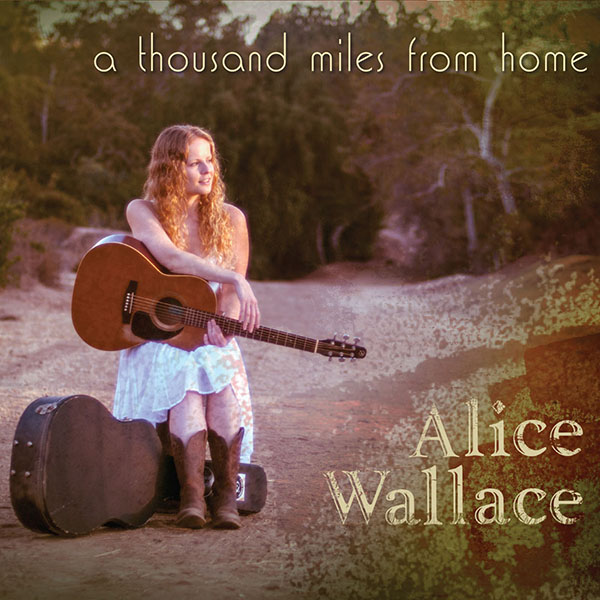

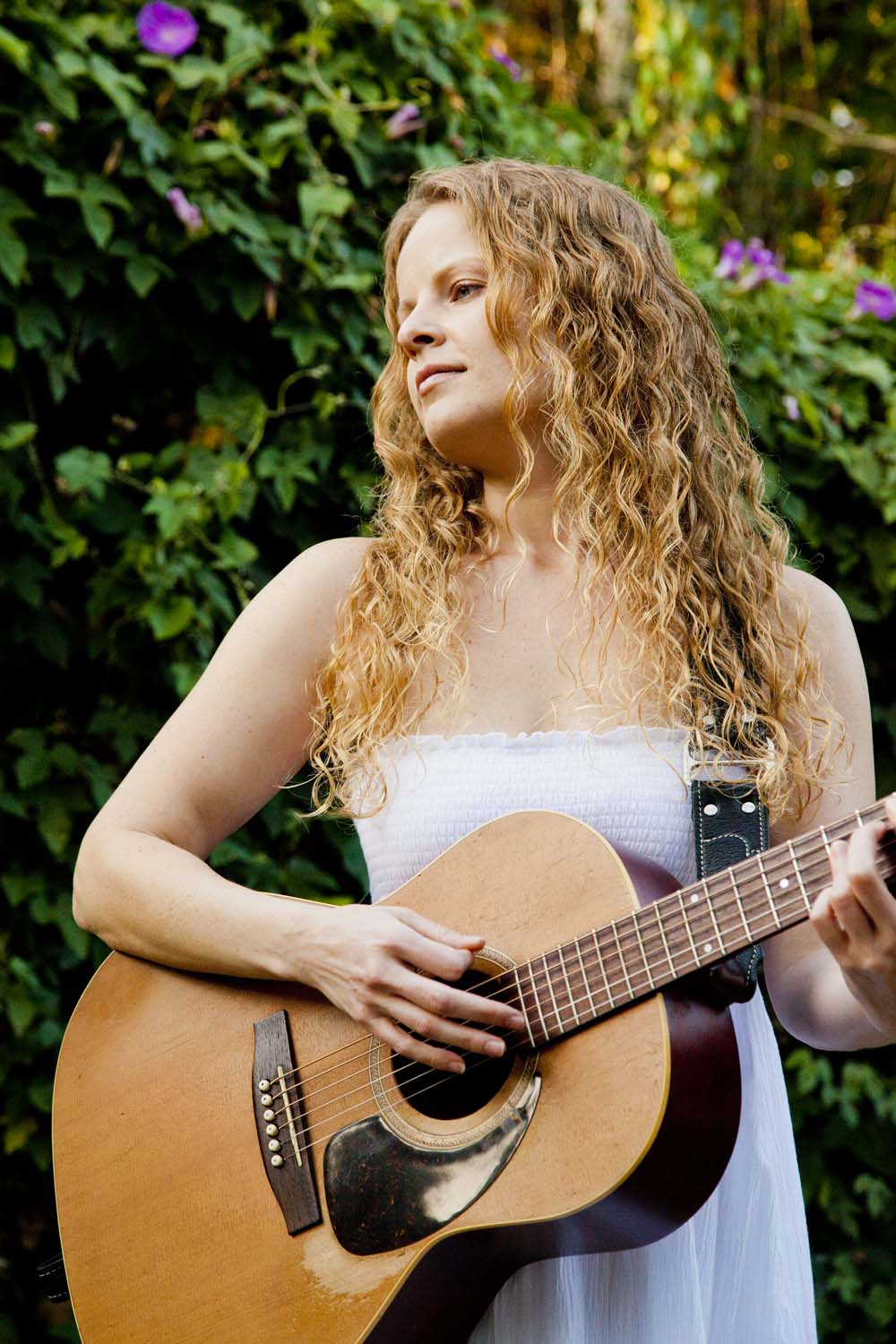
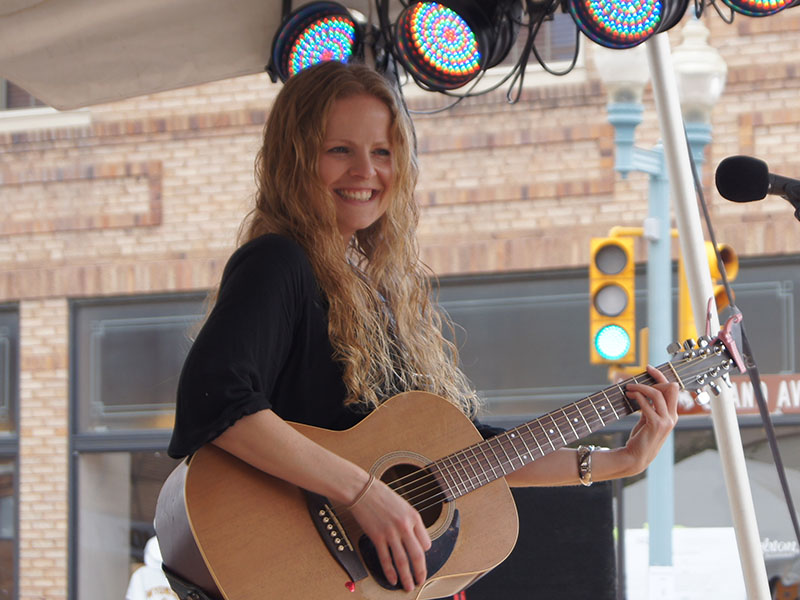
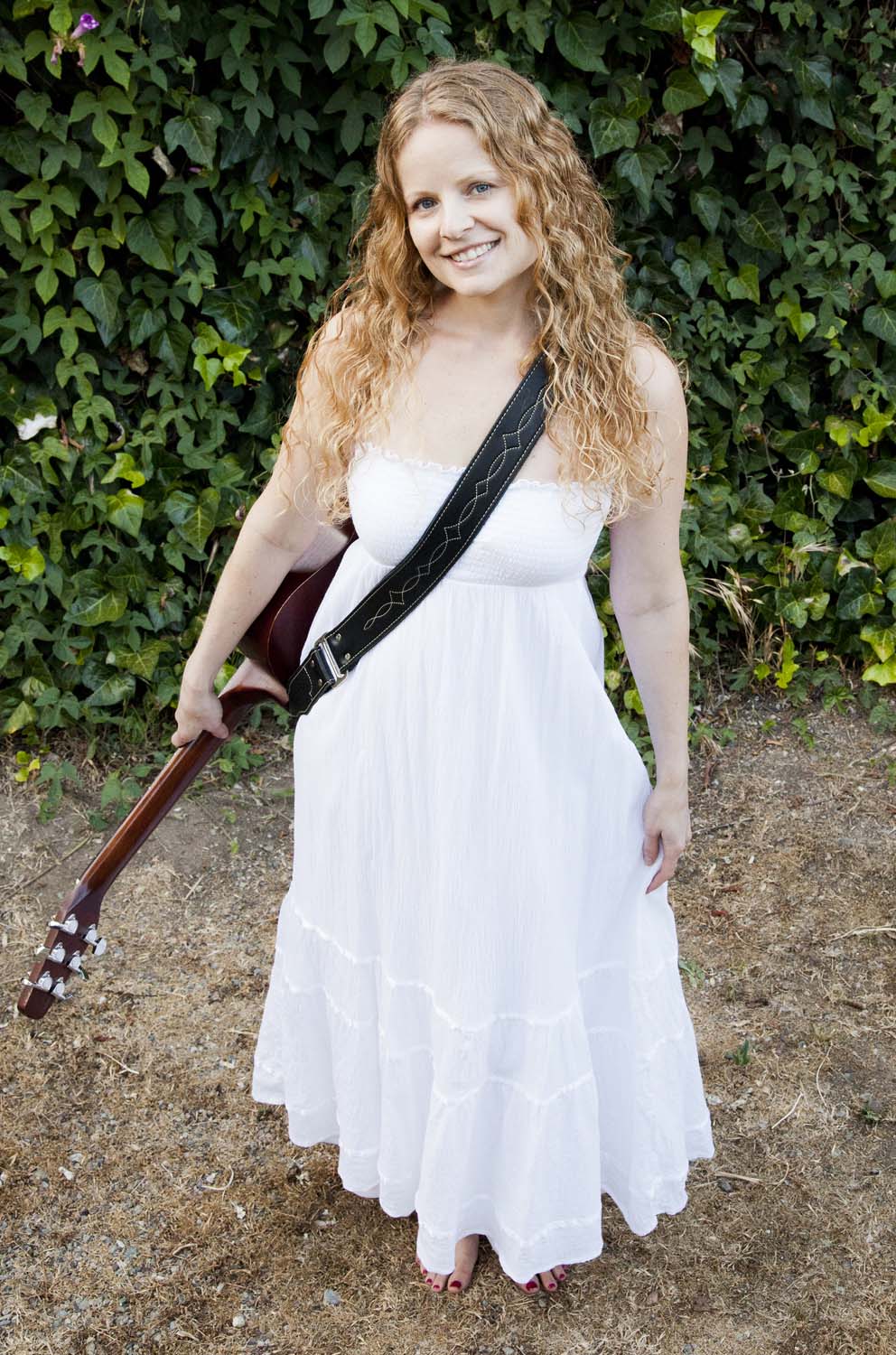
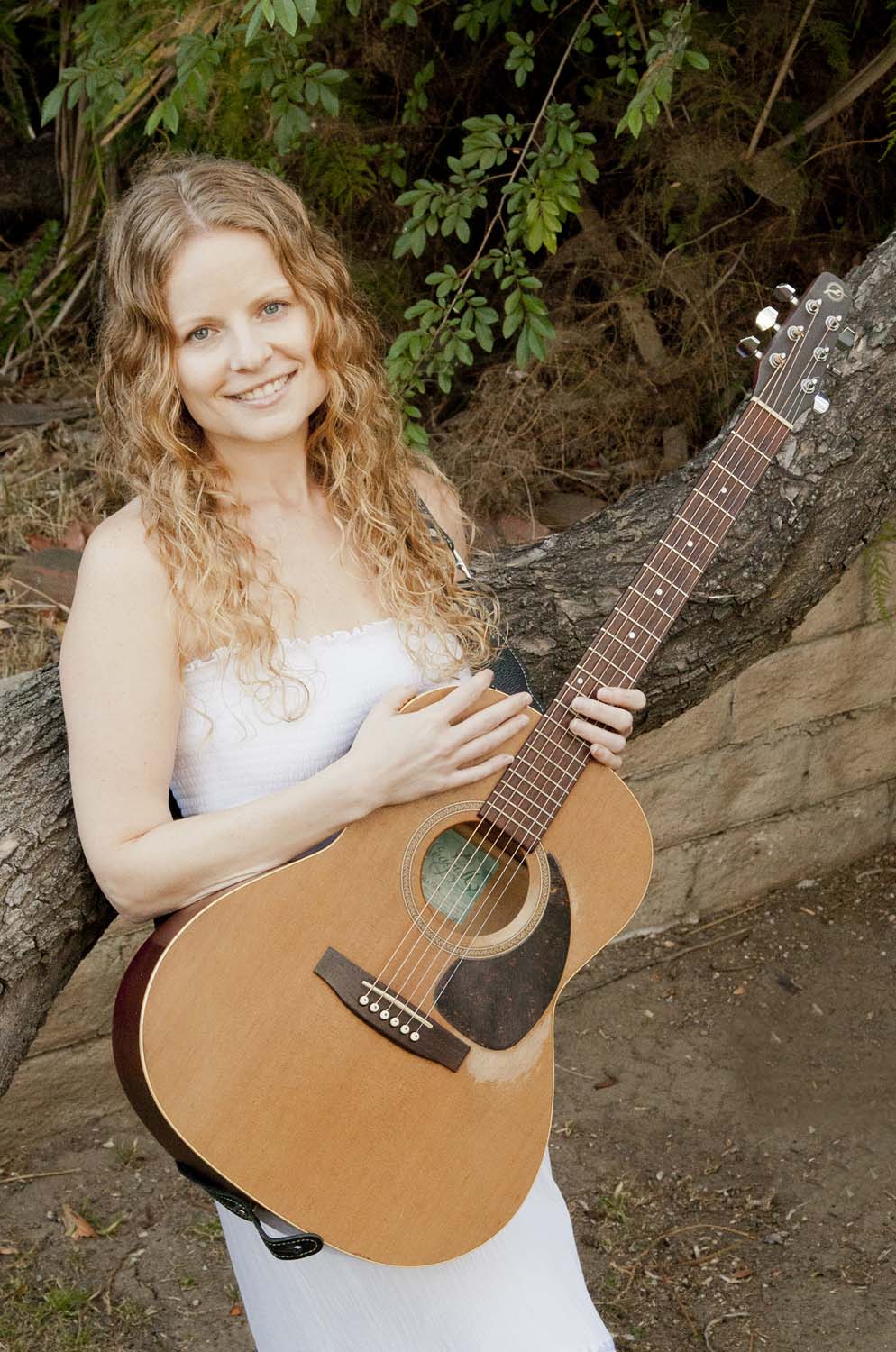


Follow @NoSurfMusic